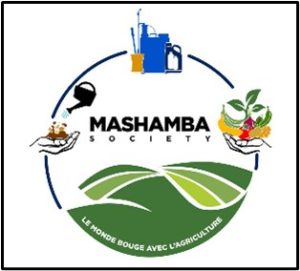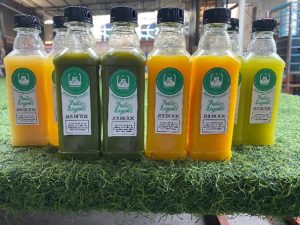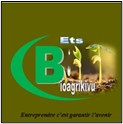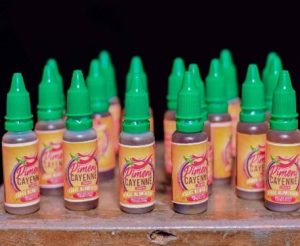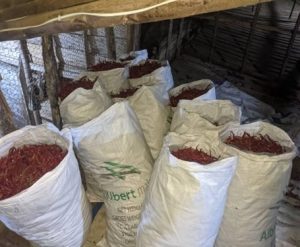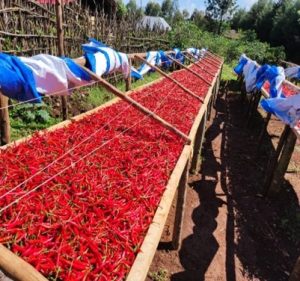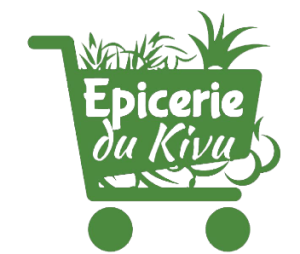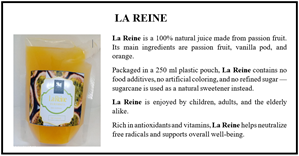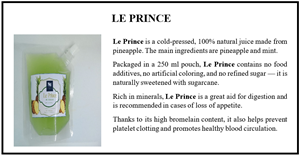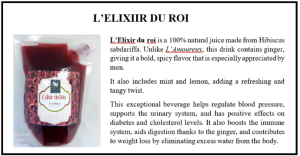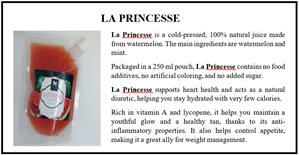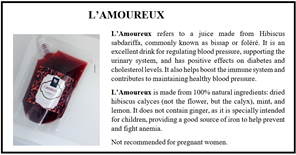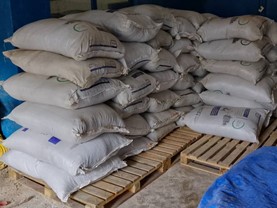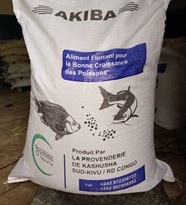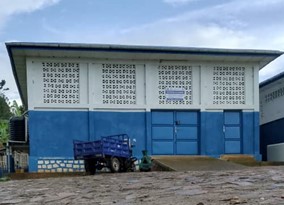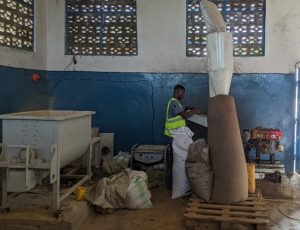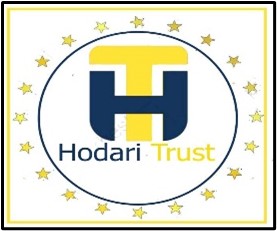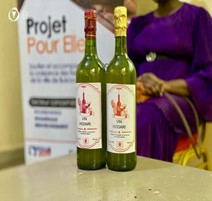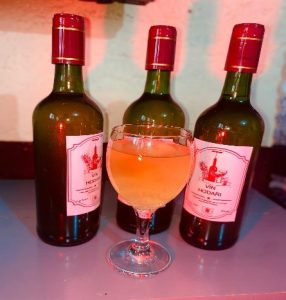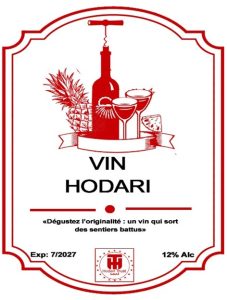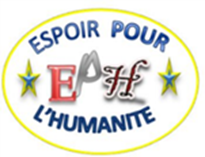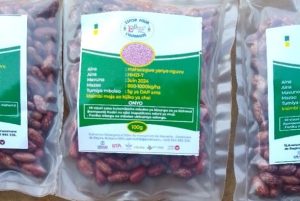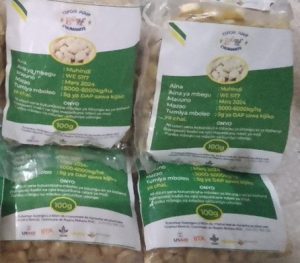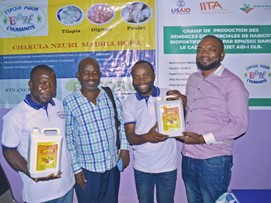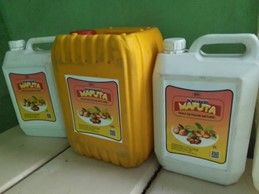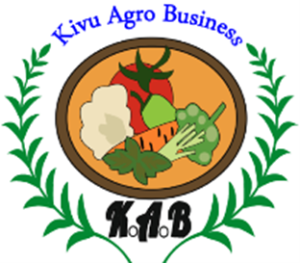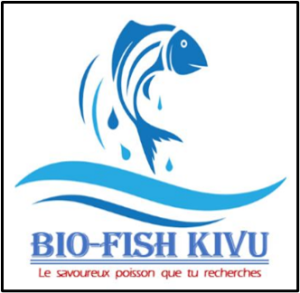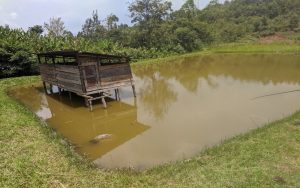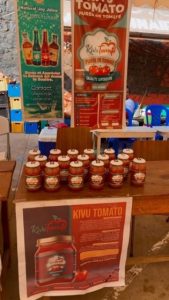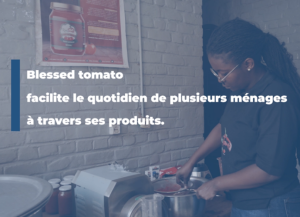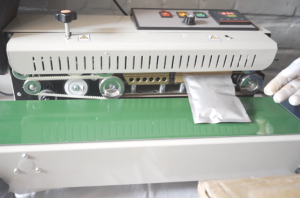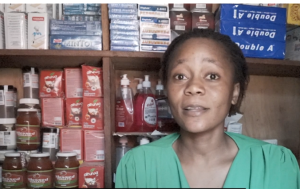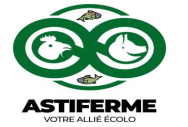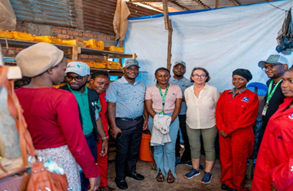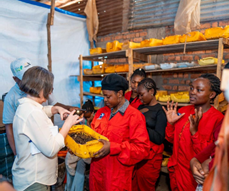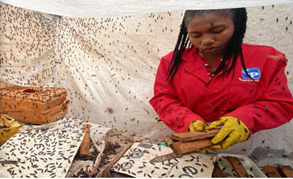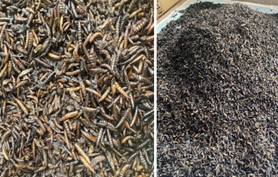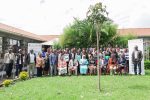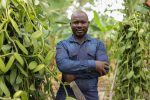Resilient start-ups amidst conflict: Evidence of young people’s endurance in DR. Congo

By Prof. Espoir BISIMWA
The Bukavu Agribusiness Incubation Center (BAIC) was a two-year initiative launched in 2018 by the Regional University Forum for Capacity Building in Agriculture (RUFORUM) in partnership with the Université Catholique de Bukavu (UCB) in South Kivu, Democratic Republic of Congo (DRC), funded under the RUFORUM Entrepreneurship Challenge Program (RECAP). This project aimed to cataylse entrepreneurship among young people in the university to facilitate timely transitions through promoting agribusiness as an alternative viable path for economic empowerment and job creation that addresses the pervasive high youth unemployment in the country.
While the project was initially meant to be implemented at Université Catholique de Bukavu (UCB), the university reached out to two other institutions; Université Evangélique de Bukavu (UEA) and Institut Supérieur de Développement Rural (ISDR) that enabled their students to participate in the experiential entrepreneurship training and learning, coaching and mentoriship in business development and execution.
Through this project, 12 startups were selected and incubated. However, the recent outbreak of conflict in North and South Kivu region where most of the 12 businesses operate affected operations and profitability. With the restoration of the relative peace, the startups are demonstrating resilience having withered through the conflict storm. Even amidst reduced business volume, the startups continue to remain committed to deliverying value to their clients and provide work opportunities to others in the country. This demonstrates that their enterprises are within the relevant areas that provide the much needed services.
This article seeks to celebrate these young people and their startups that have continued to withstand the test of time and keep in business despite the hard realities associated with the conflict situation in the region. Below are their profiles.
Mashamba Society is an agribusiness company operating in the agriculture and agri-food sector. It is based in Goma, in North Kivu Province, in the eastern part of the DRC. The company is involved in the production, development, and processing of local agricultural resources. Its flagship product is plantain flour branded as Djimba, which is sold on the local markets of North Kivu, South Kivu, and Kinshasa.
Mashamba Society also diversified to other products; production of natural detox juices, made from local fruits and vegetables, aimed at promoting health and wellness; production and commercialization of whole wheat flour for pastry use launched in response to the growing demand for more nutritious bakery products; production and sale of food and vegetable crops, including sweet potato, maize, bell pepper, and tomato.
The company employs 10 full-time staff (in production, processing, management, and distribution) and 6 part-time workers (sales support, seasonal harvesting, and packaging) with several indirect job opportunities enabled across the different segments of operations. Mashamba Society is currently striving on its recovery and stabilisation strategy with the aim to later expand its operations to other region provinces of DRC and neighboring countries such as Rwanda, Uganda, and Tanzania.
2. BIOAGRIKIVU
BIOAGRIKIVU was created in 2019 and operates in the cayenne pepper value chain. The company employs five full-time staff and ten part-time workers. The company is providing diverse pepper products such as sweet liquid pepper, pepper in sauce, pepper powder, and spicy liquid pepper. Apart from the processing of peppers, the company is actively engaged in the agro-environmental sector, focusing on the cultivation of ornamental, fruit, and agroforestry trees for the local community, and providing agro-pastoral consultancy.
Recent security concerns in the parts of Goma and Bukavu limited its operations as it affected deliveries of both inputs and products as well as raised costs of operations. Despite these challenges, the organization is looking ahead with determination focusing its attention on developing small local processing units and exploring regional markets.
Épicerie du Kivu is an agri-food company based in Bukavu, specializing in the production, sale, and home delivery of fresh fruits and vegetables. While it initially focused on the distribution of fruits and vegetables, Épicerie du Kivu has expanded its operations to include the production of potatoes and beans in North Kivu Province, in response to growing customer demand. Currently, the company operates mainly in Bukavu, with plans to expand to Goma and Kalemie and other areas in the country such as Aru, Durba, and Ariwara in Ituri Province.
In collaboration with NTHAL CAFÉ RESTO, Épicerie du Kivu has launched a University catering project. The company manages a restaurant on campus of the Université Évangélique en Afrique (U.E.A.), where it serves over 700 meals daily. Before the conflict in eastern DRC, the company provided breakfast services to 11 local and international organizations. Due to the current security situation, it continues to serve two partners: Panzi Foundation and Vétérinaires Sans Frontières (VSF).
Épicerie du Kivu currently employs 26 people, including restaurant staff and delivery agents. As the company seeks stabilisation, growth and expansion strategy, it will create more jobs and engage more young people.
4. SAFIR SMART
Safir Smart company operates in both cultivation and processing of Hibiscus sabdariffa, mint, and sugarcane, pineapple, passion fruit, watermelon, mandarin, and citrus. Their various products are presented below. The company experienced significant loss in equipment due to the insecurity that erupted in its operation areas. The company is currently restarting its activities with a reduced workforce undertaking sales and deliveries in small quantities.
In the short and medium term, the company’s focus is to re-establish its processing plant with acquisition of equipment including an extractor, bottle capper, specific glass bottles, an autoclave, a pasteurizer, and a vacuum sealer for pouches. Further, the company is focused to reestablish its market control as well as reviving farming activities as farmers reintegrate into their production areas and farmlands.
5. PROVENDE KIVU
Provende Kivu is a company engaged in the production of livestock and fish feed in South Kivu, DRC. Currently, Provende Kivu produces feed for poultry, pigs, and fish at its factory located in Kabare Territory, in the Miti groupement, Kashusha village. The company distributes its products to Bukavu city and surrounding areas. Raw materials are sourced from North Kivu, the Ruzizi Plain, and other local areas. Beyond the funding it received from the university and RUFORUM, the company secured funding the FAO/PICAGEL project. The company currently employs 15 workers directly with several other persons involved indirectly in production and retail of feeds and products from polutry and fish.
The conflict in the region affected the company’s client portolio becuase more than half of its customers are located in conflict zones, many have been displaced, and those who remain often lack the financial means to purchase animal feed due to the deteriorating socio-economic and political situation in the region. This has affected the company’s sales volumes and profit margins. Despite the current crisis, Provende Kivu remains hopeful and is planning to increase its production capacity and expand by establishing additional production units in other provinces of the DR. Congo.
6. HODARY TRUST
HODARI TRUST is a company engaged in a fully integrated value chain focused on local agri-food processing, particularly through the production of pineapple wine. The company utilizes a targeted marketing and pricing strategy that has enabled effective distribution of the wine in various locations in Bukavu. However, due to the economic downturn caused by the ongoing conflict, the company has had to downscale its staffing as well as its operations.
Looking ahead, HODARI TRUST intends to diversify its product range by exploring other high-value pineapple derivatives, such as jam and dried fruit. This diversification will allow better use of raw materials, reduce waste, and attract a broader customer base with varied preferences. This will further revamp the company’s profit margins.
7. ESPOIR DE L’HUMANITE
ESPOIR DE L’HUMANITE established in 2019 has been active in the fisheries sector. Since 2023, the company has begun diversifying its activities into the production and sale of certified hybrid maize seeds and biofortified beans, as well as the production of palm oil. In the 2023 season, the company produced hybrid seeds (CML 566/CML 395//CML 539) in Nyangezi (Walungu Territory) and Mumosho (Kabare Territory). It processes and packages palm oil in 5-liter and 20-liter containers. The company directly employs 50 people with other people participating in the other segments of the product’s chain. The recent security situation in the area affected the company’s profit margins due to a decline in sales as well as losses due to looting of its products especially maize, beans, palm bunches, and fish.
Looking ahead, EPH’s future prospects include setting up mini sorting and packaging stations for seeds, installing mini oil mills equipped with high-performance presses, establishing a local hatchery for tilapia fingerlings to reduce fish production costs.
8. KIVU AGRO BUSINESS SARL
Kivu Agrobusiness is focused on the sale and distribution of agricultural and veterinary inputs, production and selling of chicks as well as maize, cassava, beans and sweet potatoes for processing and training and coaching of farmers in Agribusiness. Kivu Agrobusiness employs ten people. The conflict in the region affected its revenue volumes due to reduced sales and constrained access to agricultural zones, limited mobility for staff, and heightened security risks. This volatile environment affected partnerships, disrupted supply chains, and slowed down logistics operations which resulted to reduced sales volumes. Despite the difficulties caused by the security and economic context, Kivu Agrobusiness remains committed to a strategy of resilience and sustainable growth. It is rebuilding its operations and partnerships as calm returns to South and North Kivu.
9. BIOFISH KIVU
BIO-FISH KIVU is an agribusiness company focused on fish farming in ponds, combined with raising chicken on stilts above the ponds. The company supplies affordable market-ready fish, eggs, and broiler chicken. This integrated production approach enables the company to have diverse income sources and safeguard its business operations. As the conflict had disrupted its operations, the company is currently rebuilding its chicken dens, providing a quick turn-around revenue that supports its operations. However, feed costs remain high as well as theft of poultry from the production units reduces the profit margins.
10. PRESTIGIO
PRESTIGIO is a young company focused on the processing and sale of ground coffee. The company is dedicated to supporting coffee grower cooperatives by providing training in good agricultural practices and purchasing green coffee beans from the cooperatives. The company collaborates with the National Office for Agricultural Products of Congo (ONAPAC) in both North and South Kivu for the roasting and grinding of coffee.
Currently, the company employs eight people on a flexible work schedule as the company restabilizes its operations. The conflict in the area affected the company’s sales due to reduced coffee market. The company seeks to open a coffee shop where customers can access products by the cup, helping to increase visibility and appreciation of the company’s coffee and its derivatives. Further, the company seeks to acquire its own coffee processing equipment to strengthen business operations.
11. ETS BLESSED COMPANY
Ets BLESSED COMPANY, originally known as Kivu Tomato, is a business engaged in post-harvest tomato processing and marketing of tomato-based products; tomato purée, double-concentrated tomato paste, and tomato jam in Bukavu and surrounding areas.
The company supports local vegetable farmers, particularly tomato producers, who during the peak harvest season often struggle to sell large quantities due to the seasonal nature, high perishability, and delicate handling requirements of tomatoes. At the same time, it provides the local population with access to quality tomato products at stable and affordable prices throughout the year, with the goal of reducing dependence on imported raw or processed tomatoes. Ets BLESSED COMPANY sells its products through home delivery and product placement with local resellers. The company now aims to further diversify its product range by introducing ketchup and tomato powder. The company seeks to increase its branding and marketing in the short to medium term as it pursues its recovery in the post-conflict phase.
12. ASTIFERME
AstiFerme is a young company working in the production of alternative proteins using Black Soldier Fly larvae to feed fish, pigs, and poultry, as well as the production of organic fertilizers (frass) to enrich soils and support sustainable agriculture through the rearing of black soldier flies. AstiFerme collects organic waste from households, markets, and restaurants. The waste is manually sorted to remove plastics, metals, glass, and other non-biodegradable materials. Only fermentable waste including; peels, fruit and vegetable scraps, etc.) is kept to feed the larvae. Besides producing alternative protein feeds, this approach contributes to cleaning the environment of biodegradable waste that would generate undesirable methane gas during decomposition. The company currently employs three people. Thus, the company is committed to keeping the city clean, reduce important of animal feed, and create more work opportunities for young people.
